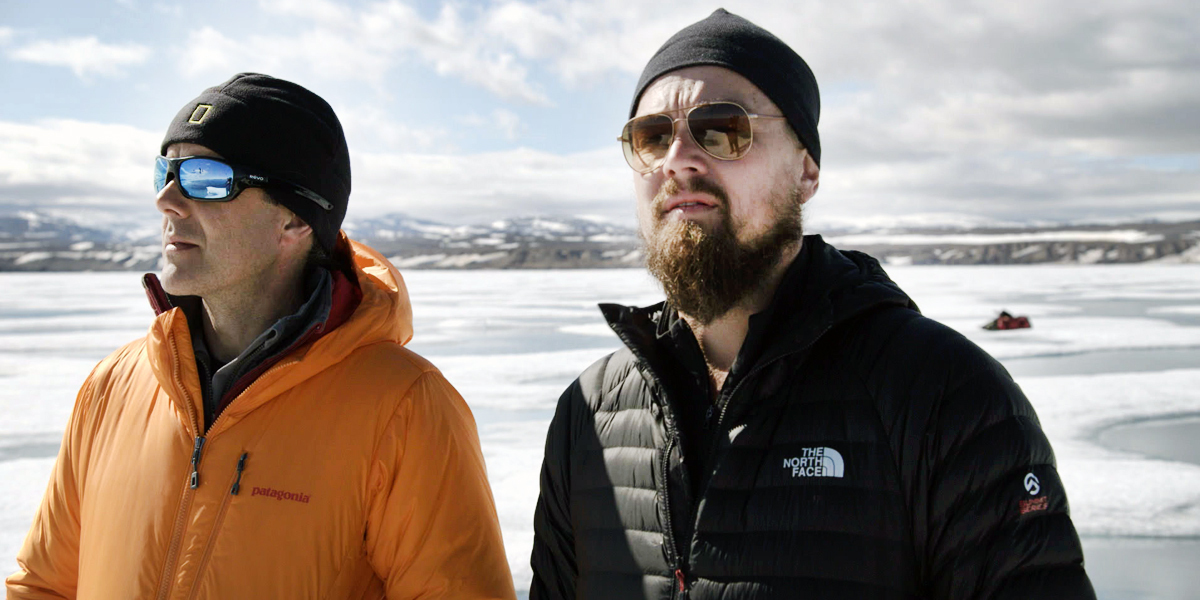
Leonardo DiCaprio’s Climate Change Documentary a ‘Rousing Call to Action’

Leonardo DiCaprio may be the star of his latest documentary,
Before the Flood, but something much bigger takes center stage: Earth.
The Oscar-winning actor and longtime environmental advocate celebrated the world premiere of his climate change documentary on Friday at the Toronto International Film Festival (TIFF).
“Looking forward to sharing this documentary with everyone as we continue to act on
#climatechange together,” DiCaprio tweeted.
He also wrote on Instagram, “filming ‘Before the Flood’ was an incredible experience & today’s screening of the documentary at
#TIFF16 is an honor.”
Awaiting premier of @LeoDiCaprio #BeforetheFlood at #TIFF16 pic.twitter.com/JeIoBwzObU
— Prof Michael E. Mann (@MichaelEMann) September 9, 2016
In the documentary, the UN Ambassador of Peace journeys around the globe to highlight the perils of a warming planet. According to TIFF documentary programmer Thom Powers’ review of the film, DiCaprio travels to Alberta, Canada to see its toxic tar sands. He witnesses the frequently flooded streets of Miami Beach, Florida. He visits Beijing, a city shrouded by a constant cloak of smog. DiCaprio also explores Indonesia, a country toiling from forest fires caused by unsustainable palm oil development.
The film also features a roster of environmental champions as guest stars, from Tesla CEO and inventor Elon Musk, meteorologist and astronaut Piers Sellers, activist and environmentalist Sunita Narain and President Barack Obama.
In the clip below, DiCaprio and National Geographic explorer-in-residence Dr. Enric Sala visit the North Pole to see narwhals, which the World Wildlife Fund classifies as nearly threatened. Narwhals depend on sea ice for their existence and can be directly impacted by climate change.
“I don’t want to be on a planet without these animals,” Sala says in the footage.
While filming #BeforeTheFlood, @LeoDiCaprio sees – and hears – Arctic narwhals. Screen the film today at #TIFF16. pic.twitter.com/IkHijLoTSk
— National Geographic TV (@NatGeoTV) September 9, 2016
Documentary director Fisher Stevens told Entertainment Weekly that the footage above was shot during a July 2015 visit to the Baffin Island in the Canadian Arctic.
“We visited National Geographic explorer Enric Sala who was doing a study on how much sea ice has melted in the Arctic—and we were shocked to hear that by 2040 there will be no sea ice left in the summer,” Stevens said.
“For two and a half years we went on a journey to learn about the effects of climate change. How far it has gone, why there are still people denying it, and whether it is too late to do anything about it,” he continued. “We’re extremely proud that National Geographic is helping us bring this odyssey to the world.”
Stevens was the producer behind the 2009 Oscar-winning exposé, The Cove, about Taiji, Japan’s infamous dolphin slaughter.
Powers praised Before the Flood, calling the film a “rousing call to action.”
“This isn’t the first environmental documentary and it won’t be the last. But DiCaprio’s charisma makes it one of the most accessible,” Powers wrote. “His passion and inquisitiveness radiate in his blunt talk and genuine curiosity.”
“As it sweeps us along on its fascinating tour,
Before the Flood reminds us of the beauty and diversity of our world,” Powers concluded. “It also galvanizes us to do whatever it takes to save the planet—and ourselves.”
Entertainment Weekly reported that after its screening in Toronto, Before the Flood will hit theaters in New York and Los Angeles starting Oct. 21. The National Geographic Channel will air the documentary globally in 171 countries and 45 languages on Oct. 30.

 233k
233k  41k
41k  Subscribe
Subscribe 